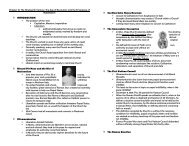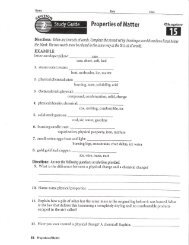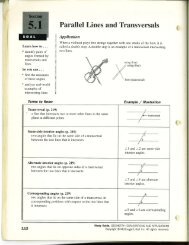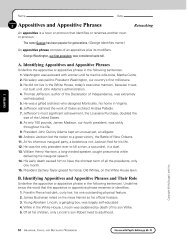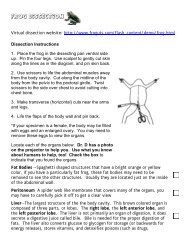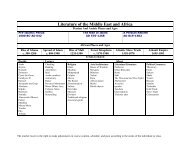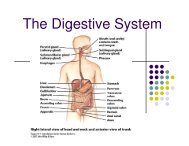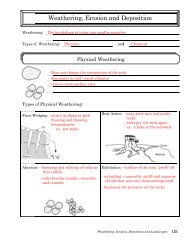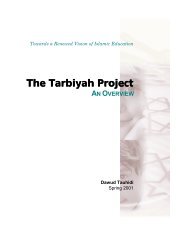JP Doucette 4-21-10 Period 3 APUSH Our Inheritance - A ... - Teacher
JP Doucette 4-21-10 Period 3 APUSH Our Inheritance - A ... - Teacher
JP Doucette 4-21-10 Period 3 APUSH Our Inheritance - A ... - Teacher
You also want an ePaper? Increase the reach of your titles
YUMPU automatically turns print PDFs into web optimized ePapers that Google loves.
abolished and continues to prohibit slavery and involuntary servitude, except as<br />
punishment for a crime.<br />
9. April 9, 1866 - The first of two Civil Rights Acts passed during Reconstruction<br />
declares that all persons born in the United States, except untaxed Indians, are<br />
citizens and have equal legal and property rights. Adopted over President Andrew<br />
Johnson’s veto, the act sought to counteract the Black Codes adopted in former<br />
Confederate states.<br />
<strong>10</strong>. July 28, 1868 - The 14th Amendment, which extends citizenship to all persons born<br />
in the United States and guarantees due process and equal protection of the law, takes<br />
effect.<br />
What is your thesis to explain the relative success (or lack of it) in this movement?<br />
Through years and years of perseverance and determination, the Abolition<br />
Movement finally found it’s success through the passing of several pieces of legislation<br />
including the Emancipation Proclamation, the Civil Rights Act, and perhaps most<br />
importantly, the 13th and 14th Amendments to the United States Constitution. These<br />
pieces of legislation and the movement as a whole laid the groundwork for not only<br />
future movements regarding the rights of African-Americans, but for all reform<br />
movements collectively.




